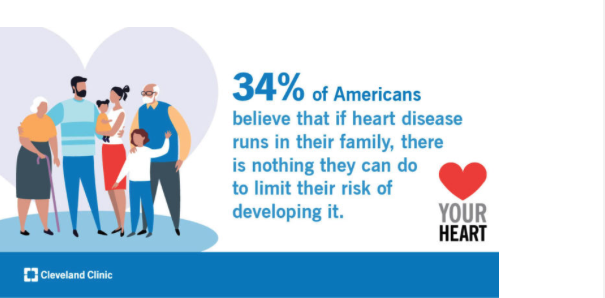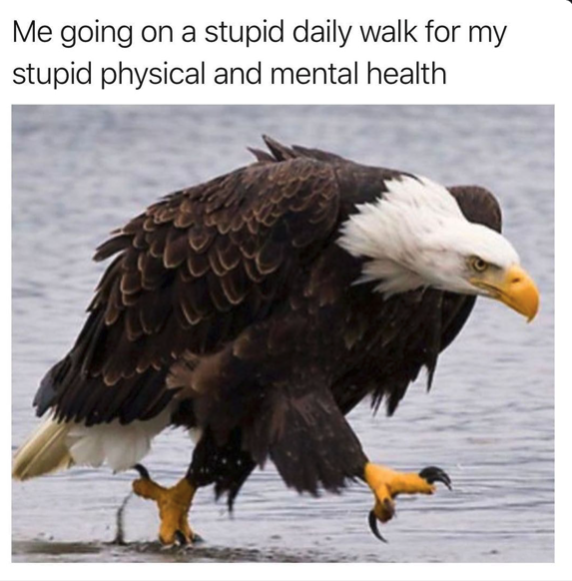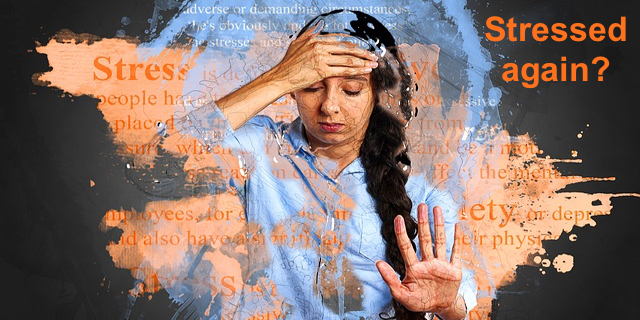Welcome to April, which is also Stress Awareness Month. For many of us, every month feels like stress awareness month. You don’t need one more article that says “stress is bad,” and that “you should go for a walk.” Or do you? Ask yourself this question:
- Do you think that stress is just a feeling?
Maybe you think stress is just an appropriate reaction to your circumstances, and you don’t know that there are long-term consequences to your health. According to the Cleveland Clinic, stress isn’t just in your head – it is the body’s biochemical reaction to important situations. When stress is chronic and unrelieved by periods of relaxation, it has genuine physical consequences. You probably know all too well that stress is related to headaches, muscle tension, digestive problems, trouble sleeping, exhaustion, and a weakened immune system. But did you know stress leads to an increased risk of hypertension (high blood pressure) and heart disease?
- Would you respond to your stress differently if you thought, “I could be giving myself heart disease”?
Maybe you would, maybe not. Perhaps you have had the thought, “If this keeps up, I’m going to give myself a stroke,” but then took a cigarette break to feel better instead of acknowledging that it’s the physical truth. It’s common to view stress as something you can only relieve with other unhealthy behaviors, like overeating, compulsive shopping, smoking, drinking, and using drugs, some of which are also contributors to heart disease.
- The problem is not the experience of stress – it’s believing that there isn’t anything you can do about it.

Samir Kapadia, M.D., chairman of Cardiovascular Medicine at Cleveland Clinic, says “We know 90% of heart disease is preventable.” At the same time, their 2022 survey found that 34% of Americans believe that if heart disease runs in their family, there is nothing they can do to limit their risk of developing it. Physicians believe that early screening and treatment can save lives, but the same survey found that 40% of those who have lost a family member to heart disease before the age of 60 have never been screened for the condition they lost a family member to, a figure that jumps to 54% among millennials.
What does Dr. Kapadia advise doing to prevent 90% of heart disease? You know the list: healthier diet, regular exercise, and not smoking. A recent study found that just changing the variety and quantity of sources of protein in the diet affected the onset of hypertension. The six-year study of 12,000 people found that “the participants with the greatest variety of protein in their diet had less than half the rate of new-onset hypertension than those with a [low] protein variety score.”
After considering eight major food sources, including whole and refined grains, processed and unprocessed red meat, poultry, fish, eggs, and legumes, the study’s lead author concluded that “The heart health message is that consuming a balanced diet with proteins from various, different sources, rather than focusing on a single source of dietary protein, may help prevent the development of high blood pressure.” Just eating one of those bean burgers might be a start.
- Maybe relieving your own stress in healthy ways feels boring and stupid. But it’s important and you can start somewhere.
This meme of an eagle out getting some exercise may speak to you:

You can find any one of the many articles online on how to relieve stress. If you’re determined to keep your high-blood-pressure lifestyle, though, there is also “help:” When DeAnza College’s health services realized that most of their population wasn’t doing anything at all to relieve stress, they put out a humorous handout called “How to Stay Stressed.” After all, “stress helps you feel important.” They advised that you “never exercise,” “eat anything you want,” and “avoid woo-woo practices” like yoga, meditation, or even deep breathing. They also advise getting rid of your social support system.
If you’re a caregiver, you’re undoubtedly experiencing life stress. Nobody is helped if you get sick, too, over a situation you can do something – even something small – about. Taking that stupid walk is more important – and more long-term – than you realize. When you do it, give yourself credit for helping your heart.
Feature Image by Pete Linforth from Pixabay





